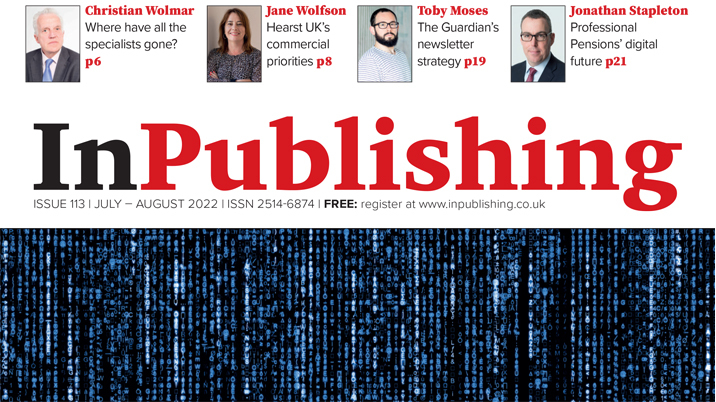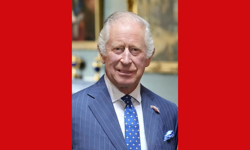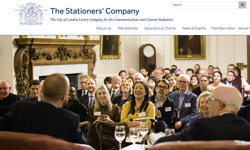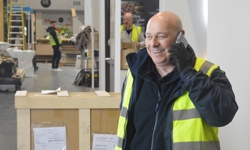
The July / August issue of InPublishing magazine was mailed out last week. Here are some of my takeaways from it:
- The decline of specialists such as the social services, labour and industrial correspondents as opposed to generalists who have to jump into the next story that comes along means that the press is less able to hold society and politicians to account.
- For large multi-brand publishers, commercial teams are increasingly selling across the whole portfolio rather than selling by brand, with a focus on solving the business challenges of their commercial clients.
- For hyperlocal sites, the key to a sustainable future is building economies of scale without losing community identity, through partnering with other hyperlocal sites to deliver scale and share costs.
- Getting your staff to appear on the front cover, as one caravanning title did last month, saves on modelling fees.
- When it comes to journalists going into politics, the FT seems to have the highest number, as does the role of leader writer.
- A lot of journalists who have set up on Substack have found it hard to make a living as they don’t have the support they would have on a newspaper in terms of editors, sub-editors, design and marketing.
- One of the main attractions of ‘digital’ or ‘events’ lies in the fact that attribution of response is very obvious; everything is measurable.
- The battle to maintain high journalistic standards is never won, because, throughout the history of news reporting, good and bad journalism has coexisted.
- Securing a successful publishing future means asking lots of questions. For instance, what will your brand look like in the metaverse? You might not have the answer yet, but it’s important to be asking the question.
- In investigative journalism, when analysing pictures and videos, the tell-tale information sometimes isn’t the image or video itself, but rather its metadata.
- Celebrity and personality driven podcasts can have limited lifespans and are obviously dependent on the presenters retaining their appeal and sticking around. Instead, make the content the star.
- British media outlets increasingly find that privacy law, rather than the risk of libel, is one of the biggest barriers to the publication of stories.
- Big tech platforms have enjoyed near monopoly power for too long, and report after report has demonstrated how that is damaging for consumers, businesses and publishers alike.
If you want to read the full issue, then please register here. Once you’ve completed your registration, you’ll be provided with a link to the digital edition.
You can catch James Evelegh’s regular column in the InPubWeekly newsletter, which you can register to receive here.










